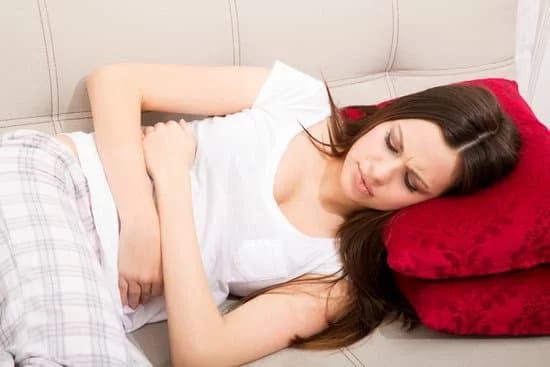Reasons For Delayed Periods:
Sep 09, 2019 • 128 views
Menstruation
It is also commonly called periods. It is the monthly discharge of blood and mucosal tissue from the inner lining of the uterus in a woman. It is discharged through the vagina.
Every month, one of the ovaries in a woman releases an egg. The uterus lining gets thicker to receive a fertilized egg. If the egg is not fertilized, the lining is shed and discharged as a period.
Composition of menstrual blood
It is mainly composed of blood, uterine tissue, cells from the mucous lining of the vagina. The colour varies from bright red to dark red to brown.
Symptoms
The symptoms are mild in the few days leading up to menstruation and during the 1st and 2nd day it is heavy.
Tender breasts, bloating, muscle aches, stomach cramps, headache, acne, joint pain, lower back pain, low energy, trouble in sleeping.

Menstrual cramps - Source: Pixabay
The absence of monthly periods is called amenorrhea.
A period is considered late when it is delayed by 5 days or more.
Naturally, periods are delayed and absent if a woman is pregnant, breastfeeding and menopause.
Types of amenorrhea
Primary amenorrhea- A teen girl who has passed the age of 16 but hasn't had her first period.
Secondary amenorrhea- If a woman hasn't got her periods for at least 3 months.
Have you wondered why do some women have irregular periods?
Listed below are the reasons.
Lifestyle factors- night shift working women are at a higher risk of having menstrual problems. This leads to changes in sleep cycle - alterations in the circadian rhythm can cause a woman to experience irregular periods.
Excessive exercise- many athletes, experience secondary amenorrhea where they don't get their periods for 6 months or longer. According to Mary Jane a professor at taking the school of medicine, a woman needs a certain amount of fat to ovulate, so if the body fat dips very low then it is difficult to ovulate.
Emotional stress: During the time of marriage, every woman goes through a lot of stress. They have many dreams and expectations. This can lead to a considerable level of stress. According to Dr.Lara, "It often takes a one-time extraordinary stressful event to create an abnormal period." Such situations are the death of a family member, divorce or loss of a job.
Hormonal imbalance- Thyroid gland and its hormone play a major role in a woman because it regulates the body's hormone production. It is necessary for a woman to check her thyroid level every 6 months. When thyroid level is either too high or too low then it can be a reason for delayed periods.
Overweight- when a woman puts on extra weight this can alter the menstrual cycle and lead to delayed periods. During weight gain, a woman's ovaries produce more testosterone. This can prevent ovulation. Similarly, drastic weight loss due to anorexia can also be a reason for delayed periods.
Breastfeeding-lactational amenorrhea- a phase which disrupts the menstrual cycle.
Problems in reproductive organs.
Genetic disorders-turner syndrome- the total or partial absence of one X chromosome results in ovarian dysgenesis.
Diabetes and other chronic diseases can also affect the menstrual cycle.
PCOD- polycystic ovarian syndrome is a common cause for delayed periods. In PCOD there is hormonal imbalance and thus the ovaries produce too much of progesterone.
Early perimenopause where a woman around the age of 40 develops symptoms of delayed periods.
Repeated medication- antipsychotics have an effect on the menstrual cycle. Medications can elevate the pituitary hormone level in the body which altered with the regulation of other hormones and thus altering the menstrual cycle. Birth control pills have many side effects on a woman's menstrual cycle. Suddenly stopping birth control pills can be the reason for delayed periods.
Chemotherapy drugs can also cause delayed periods.
When to see a doctor - If you missed periods for nearly 3 times in a row.

Drink water - Source: Pixabay
Remedy
Practice yoga- Yoga and meditation can help you relax. Certain postures in yoga help the contraction of the uterus.
Maintain weight- Eat right. What you consume determines your weight.
Exercise regularly- Exercise keeps your body fit. A healthy body holds a healthy mind.
De-stress yourself- Go on family trips and spend time with your loved ones. Share your feelings and don't let stress kill your spirit of happiness.
Drink plenty of water- water keeps us hydrated. Drink at least 3 litres of water daily.
Avoid caffeine.
Include cumin seeds, fennel seeds, fenugreek seeds, pomegranate, dates, papaya, figs, ginger and parsley in your diet.
Warm water baths and compresses can help reduce the cramps.

Eat right- Source: Pixabay
When woman are emotionally stressed all they need is a person to comfort them. Try to understand her during such times. This can reduce her stress.
